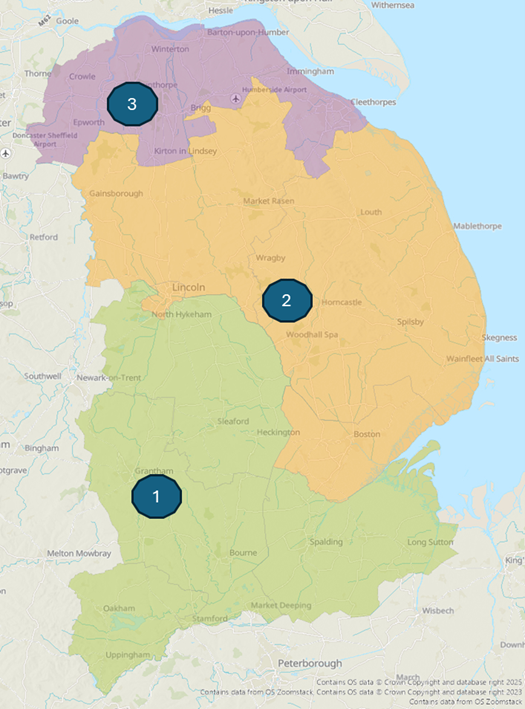When and how will a decision be made?
Interim plans submitted in March could include more than one option and are not set in stone. Full proposals must be submitted by 28th November 2025.
The Government has said it aims to carry out public consultation around proposals for LGR in early 2026. The Government expects to make its final decision by summer 2026.
Have other interim plans been submitted from Lincolnshire?
Yes, a number of other interim plans have been submitted. These include a large single unitary covering all the existing Lincolnshire district council areas submitted by the County Council, plus two unitary solution options.
There are multiple competing proposals - how will the final proposal be selected?
Lincolnshire is a big place and LGR is a significant and impactful issue. It is natural for there to be diverse views on how best to reorganise, and so different proposals have been submitted by authorities in the county.
Following the submission of the interim proposals in March, there is not a single area across the country where consensus between all local authorities has been achieved. In previous reorganisations, for example in Cumbria and Somerset, the Government received multiple proposals and took forward multiple options for statutory consultation.
Who will make the final decision?
The final decision on proposals for LGR will be taken by the Government. Council leaders are responsible for submitting full proposals by 28th November 2025. These proposals must also be supported by evidence and widespread engagement. It will then be down to the Government to consult.
How can I get involved?
There will be a comprehensive package of public engagement to help develop final proposals to be submitted by 28 November 2025.
Once a proposal has been submitted, it will be for the Government to decide on a proposal to take forward and to consult upon as required by statute.
Will there be a referendum?
No. The Government has outlined the process and there is no requirement for a referendum. The Government has rejected calls for a legally binding referendum on this issue in other parts of England.
What is the timescale for LGR?
The Government is planning two waves of LGR implementation - one in April 2027 and one in April 2028. Lincolnshire will be part of the second wave.
Who will deliver local services during the reorganisation process?
Under the Government’s timetable, South Kesteven District Council and all other Lincolnshire councils will continue to deliver all their usual services up until ‘vesting day’ for the new unitary councils in April 2028, whereupon all local services will be delivered by a unitary council.
Will Council Tax go up or down following reorganisation?
Council Tax rates will need to be amended in areas with new authorities. It means some rates may go up or down depending on where you live but it is not expected that rates will change significantly for taxpayers.
What about council tenants?
Any councils with housing stock (some are managed by other providers) would simply transfer the stock to the new council. For tenants, their landlord will be a different council, but their home and status as council tenants will stay the same. We are committed to ensure tenants are kept fully informed about the process.
What will be the impact on council rents?
Rents will not be directly impacted by LGR. Rent levels will continue to be considered annually as part of usual processes.

